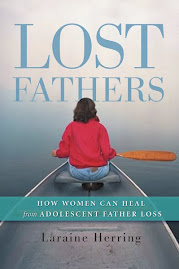Warning: Rant Ahead.
When I was in college, no one asked me for feedback. On anything. On anyone. This was not in the age of dinosaurs. This was in the late 80s. No one asked me if the chairs were comfortable. If the instructor was pleasant and accommodated my unique learning style. If I felt the assignments were fair. If I felt the instructor were qualified. No one asked.
No one should have.
When I was employed in my first "real" job, no one asked me for feedback. On anything. On anyone. How did I like the new restructuring? Do I feel secure? Do I want a blankey?
In the past week, I have been asked for my feedback from the following sources:
Travelocity: Would I please rate my booking experience?
My Dentist: Would I please rate my teeth cleaning experience?
The IT department at my college: Would I please rate my Help Desk Experience?
Every single commerce situation I've had in the past week: Survey on the receipts from: Bookmans, Fry's, CVS, Texaco.
Amazon.com would love to know how I'm enjoying my Kindle.
(Ha, ha, I'm not going to tell them!)
YouTube wants to know how I like my channel.
Google Apps wants to know if I'm satisfied with the upgrades.
Yahoo!Mail wants feedback on its Beta Mail program.
My tax accountant: Would I please comment on my experience with my taxes?
My VISA card: How do I like the new allocation of points?
My employer: Would I please provide feedback on my immediate supervisor?
My recent Netflix InstantView: How did I like the movie?
My MFA alma mater: How has my MFA served me?
My MA alma mater: What would I like to see college X doing moving forward?
I'm convinced SurveyMonkey is a sign of the apocalypse. Except I don't think there is an apocalypse (wait: Why has no one asked me my opinion on how likely I think the world is going to end in my lifetime? hmmm... conspiracy theories abound.)
I don't fill out these surveys, no matter how much I love monkeys. And I do love monkeys.
My fabulous Keezel at the Omega Institute in July, 2010
If I have an opinion on something that I think might be somewhat educated and somewhat helpful, I may share that opinion privately with the institution or individual involved. But I rarely do even this because ... um ... my opinion doesn't really matter.
Am I satisfied with my teeth cleaning experience? Well, what were my expectations of that teeth cleaning experience? Were they reasonable or were they what I wanted rather than what I might have needed? Why can't it be enough just to have my teeth cleaned? If the dentist stabs me in the gum with a sharp tool, I promise I'll say something. Otherwise, just please clean my teeth. Were the heavens supposed to crack open? Should I have expected a Hallelujah chorus when she put the bite wings in for the X-rays? Did they serve me wine and cheese? Please. It's
the dentist.
How did I like my recent car's tune-up experience? Well, actually, I would have preferred if you'd have used Bay 3 for the work as my car really is sensitive to north-facing windows. I also think the tool boxes should have been in red instead of that sad metal color, and I would have really liked it if my mechanic looked like Johnny Depp. What can I tell you about tuning up a car? Nothing. Because I. Don't. Know. How. To. Tune. Up. A. Car. If the mechanic slashed my tires, poured oil in the gas tank, and drained and forgot to refill the radiator, I promise I'll say something.
It's no wonder our students think their opinion matters above all else. That we are there to serve them slavishly and attend to their every need in the way in which they (at the ripe old age of 17-1/2) believe the class and the material should be delivered. In the past week, I've had to give out surveys to my students for assessment purposes. I hate doing this, but I have to (and then I get to give the school feedback on my assessment plan participation). The school also sends out a general student satisfaction survey this week. This is not training people well for a world that, although it may ask increasingly frequently for their opinion, doesn't really want it. But worse than that, it's training them that their opinion on things about which they are not qualified to have an opinion, matters.
It doesn't help that our college's advertising campaign (which thankfully was terminated this year in a positive spin on the budget cuts) had billboards that said: Yavapai College. We're there for you. Like your dog.
I wish I was kidding on that ad campaign. I'm not using even the slightest bit of hyperbole.
If my professor never comes to class, leers at all the girls, and spends more time on his iPad than talking to us, I promise I'll say something. Other than that -- it's his class. If it doesn't work for me, I can leave.
Too much idle chatter. Too much idle speech. Too much data collection.
And here's the other thing: I am not entitled to the exact experience I may hope for. If I am in a classroom of thirty people, I am part of a group. There is a group need that outweighs my personal needs. (Gosh, I hate that instructor because she uses the red dry-erase marker. Gosh, I wish he didn't spend so much time explaining polynomials to the 90% of the class who doesn't understand them and instead focused his energies entirely on me. Me-me-me. I-I-I. This is my experience, therefore it must be as I have predetermined it must be -- otherwise it was (fill in the generalization word: stupid, useless, a waste of time, dumb, boring) Stop. Please.
I am qualified to have an opinion on two things: writing and teaching. There is nothing else in my life that I have the education or experience in to offer an intelligent, helpful, opinion. Oh sure, I'm human, so I have opinions on all kinds of things. But they're based on nothing but personal preference, personal fears, personal everything -- so they
don't need to be made public.
What does it mean that I "like" a certain item? Not one useful thing. It means I buy chocolate instead of vanilla, but that doesn't mean vanilla is bad or wrong or stupid or misguided. What right have I to keep vanilla from those who love it?
When you feel like you need to share your opinion something, ask yourself the following:
- Is it truthful?
- Is it necessary?
- Is it something that will unify rather than divide?
- Is it kind?
Aim for 4 out of 4 before you press "send".
I am not entitled to enjoy or 'like' or have fun in every experience that makes up my life. Who said that education was supposed to be entertainment? Why am I supposed to enjoy my trip to the OBGYN? I'm just supposed to do it.
Sometimes in life, we're just supposed to do things. Some of them will be hard. Some unpleasant.
Dear Ms. Herring,
We are sorry for your recent loss of (Contact: First Name, Last Name).
Thank you for using Funeral Service X. We strive to provide you everything you need at this very difficult time. To help us serve you and others better, please take a few minutes to fill out this survey about our service.
What could we have done to make your experience with us better?
Bring back Contact: First Name, Last Name.
And stop distilling every experience in my life down to a scale of 1- 5.
My life is bigger than that.
































